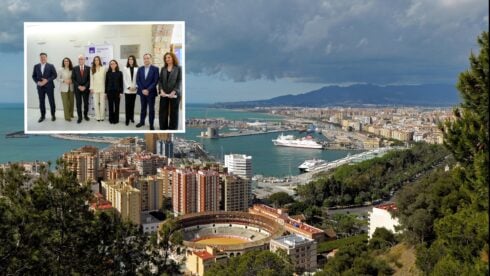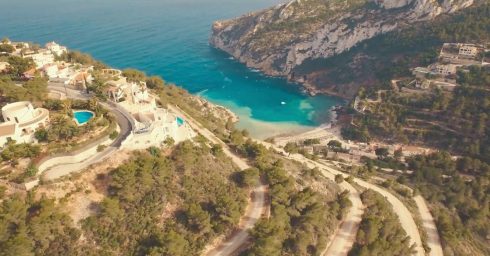WHILE thousands of people indulge in Ibiza’s vast gastronomical offer, six of its residents have decided to go on hunger strike.
The six are part of Extinction Rebellion, an international grassroots organisation that is known for its direct action to raise awareness about the climate crisis.
Refusing to eat a single morsel of food since Saturday morning, the six protestors say they will not end their strike until they educate others about their mission.
Beatriz Olivares took her hunger strike to the doors of Sant Jose’s town hall yesterday, the day when a plenary session was held to discuss issues in the municipality, where here she contested against the ‘excesses’ of the island.
Speaking to Nou Diari, Olivares said that in the last three years, an entire complex has been built in the uber-exclusive area of Cala Jondal comprising of seven luxury homes and five swimming pools on a 10,000 square meter plot of land.
However, the complex is reportedly yet to be finished and last month, Olivares said the contractors installed six new generators, two of them which run 24 hours a day – a matter the 50-year-old ecologist claims is an injustice to the climate due to the amount of emissions emitted.
Olivares, whose house is powered by solar panels, also believes that Ibiza is one of the biggest problems for climate change due to its attraction to the rich.
She cites that according to a 2020 University of Leeds study, millionaires are the main contributors to climate change since the wealthiest tenth of people consume about 20 times more energy overall than the bottom ten.
The university researchers concluded in their study that richer people were to blame due to the more energy they typically use, and that this matter was replicated across all countries.
They also warned that, unless there’s a significant policy change internationally, household energy consumption could double from 2011 levels by 2050 even if energy efficiency improves.

The local hunger strike also seeks to attract the attention of the public, so much so that Oliveras said that ‘everyone now wants the group to explain why they have resorted to this extreme action’, one very clear benefit from a protest.
Their goal is therefore to inform and educate the public and to be part of government decisions on climate change.
Although not yet receiving any response from any member of the Balearic government, the group are not willing to end their hunger strike yet.
The project hopes to improve city air by absorbing 175,000 tons of carbon dioxide each year and will transform disused areas between roads and buildings by planting more than half a million trees.
READ MORE:
- Do something!: Inaction is a weapon of mass destruction when it comes to climate change
- WHEN CHANGE IS NOT GOOD: UN report highlights climate change threat faced by Spain’s Valencia region
- FROM FARM TO FORK: EU announces farming overhaul to improve animal welfare and tackle climate change
Click here to read more Spain News from The Olive Press.








